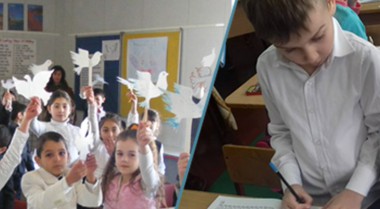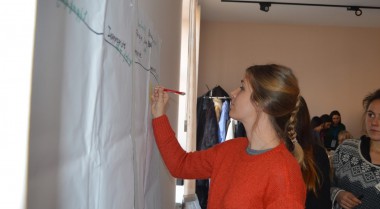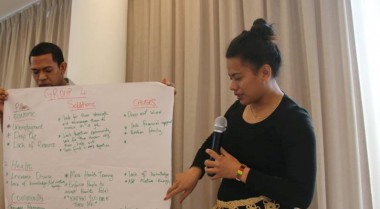
The Importance of Peace Education: World Day of Social Justice
During the past two decades, the world experienced some of the highest rates of violence, having affected large numbers of countries and regions, from the poorest to the most affluent, directly affecting the lives, dignity, and wellbeing of millions of people globally. Conflicts often cause unjust distribution of resources and vice versa, leading to inequality. Peace education is a primary pillar for preventing armed conflict and violence, saving lives and freeing up limited resources for social needs.
Opportunities for reform and positive change often arise simultaneously during and after conflicts, as peace education initiatives helps educators teach the next generation to better understand and address problems that can undermine the rule of law and prepare students to serve as the next generation of leaders in creating a more equitable society.
Peace education is a primary pillar for preventing armed conflict and violence, saving lives and freeing up limited resources for social needs.
The Peace Education Working Group (PEWG) of the Global Partnership for the Prevention of Armed Conflict has been working in the field of peacebuilding and conflict prevention since 2007, addressing the structures that lead to both physical, social, and psychological violence through education initiatives in schools, colleges, and communities.
The PEWG supports country-wide peace and conflict education policies and the development of educational structures at scale within countries and regions to build the capacity of youth, family and community members. It is crucial for these groups to have the knowledge, skills and abilities to better address and manage conflicts and advocate for social justice in their communities. We urge governments and civil society to support the cause of conflict prevention through peace education and nonviolent conflict resolution as well as to endeavor to put in place structures and conditions that uphold social justice.


